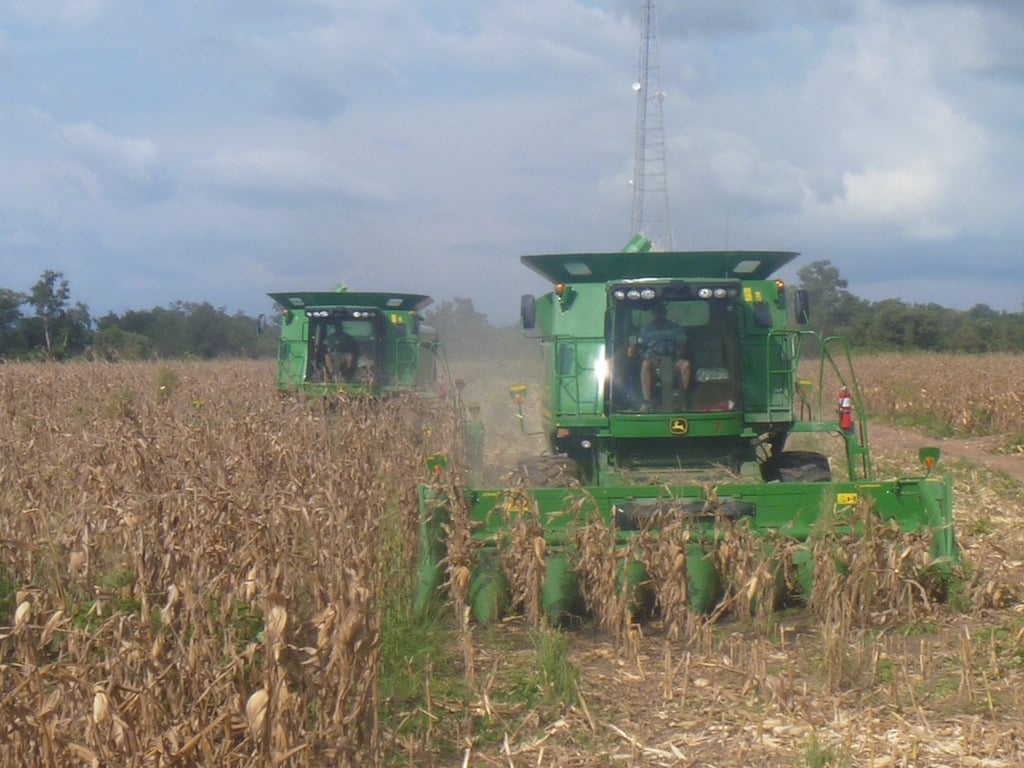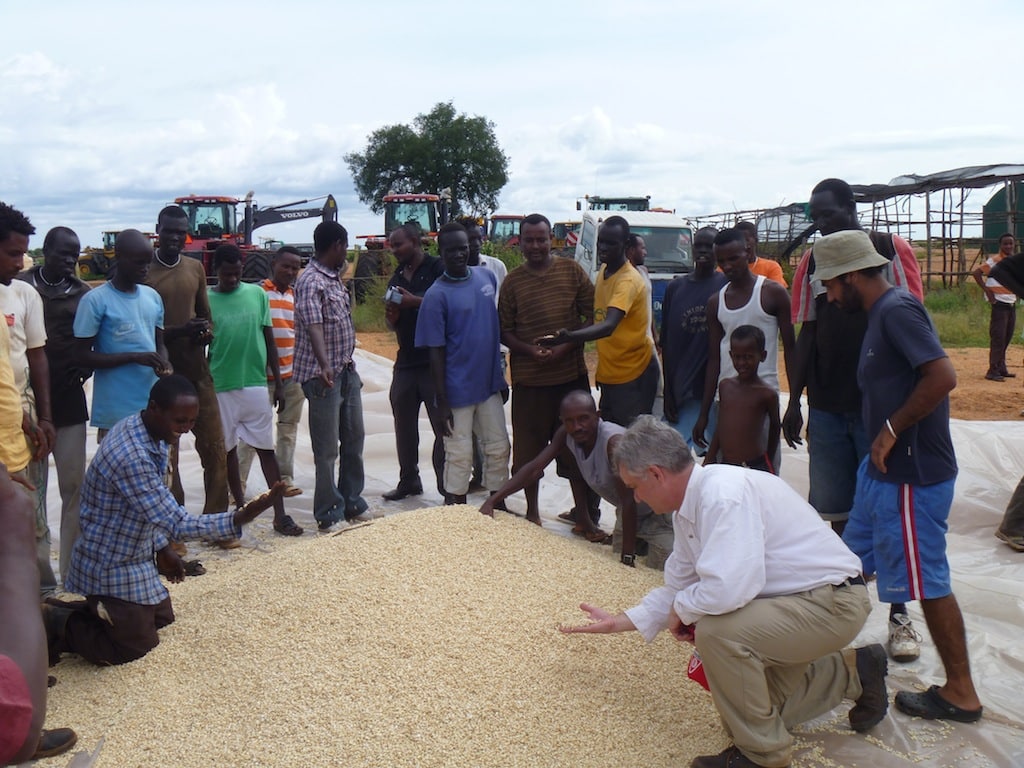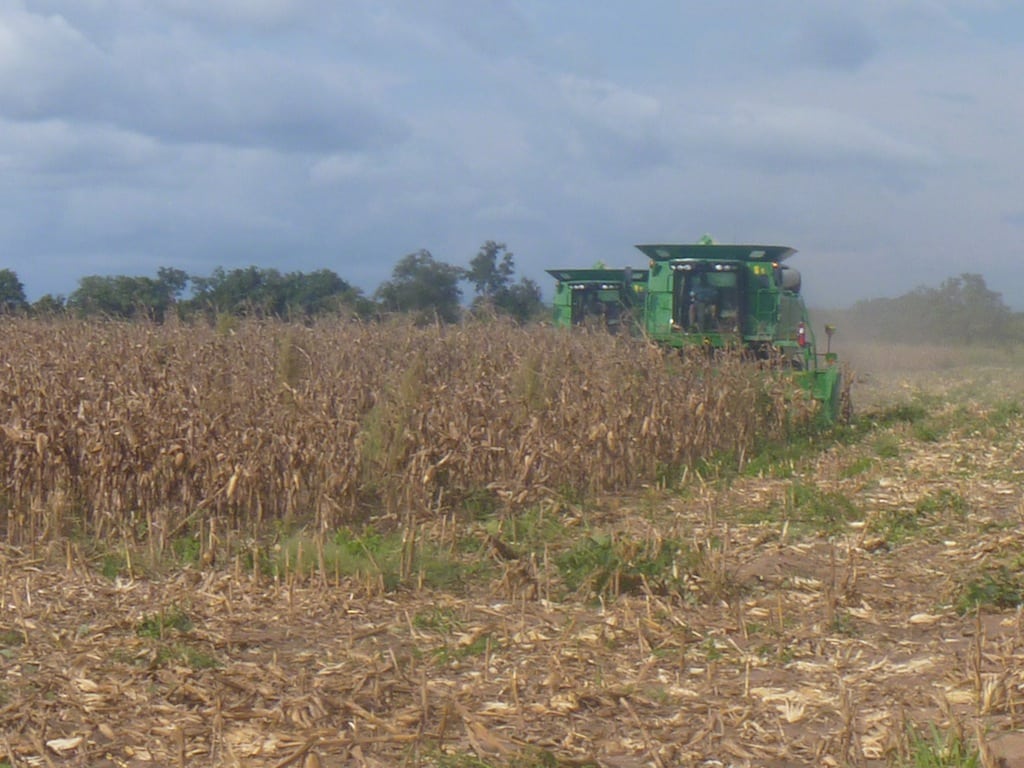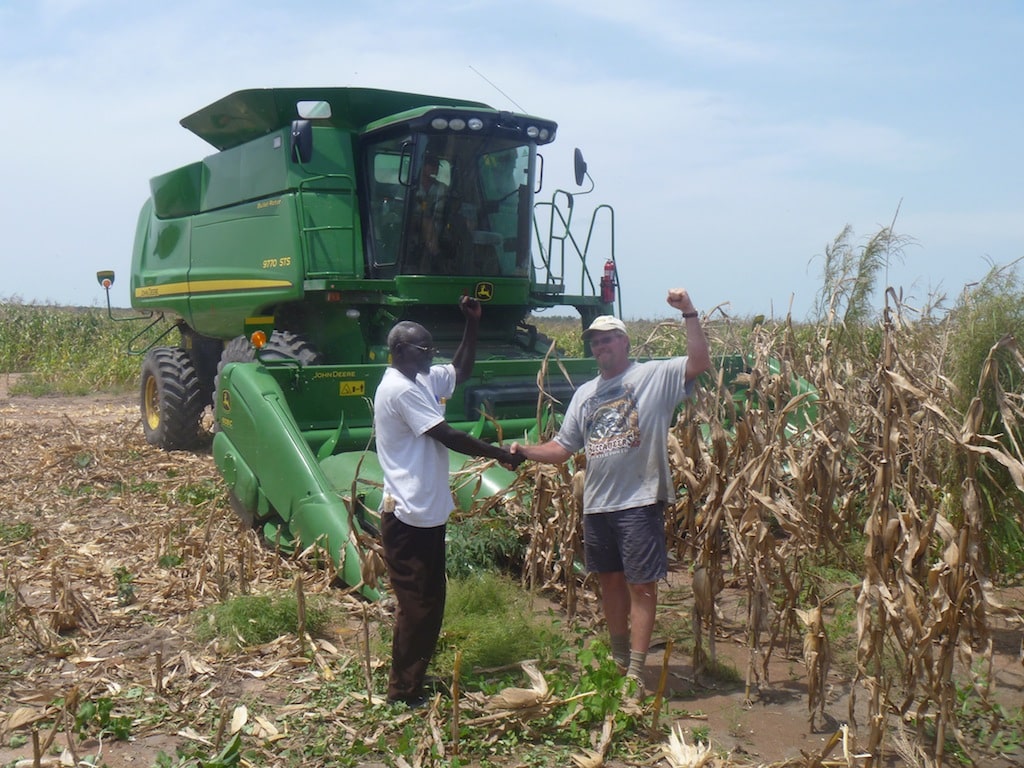Despite insurmountable challenges, the FAF team has achieved success with the first large-scale corn production farm in Western Ethiopia. The corn harvest began on October 12, 2012 and was met with a high-level excitement and curiosity by local villagers who have never witnessed such an event. Tears of joy could be seen on the faces of some of the 200-plus locals and farm workers that crowded around a combine to see the first drop of shelled corn. The villagers were mesmerized in the moment as one of the local elders made a spiritual blessing in thanks for the bountiful harvest.
A liaison with the local tribe, Daniel, commented on the harvest by saying, “This is truly a historic day, not only for the local village but for our country. Today, you have proved that large-scale farming can be successfully implemented (here) and this can potentially change our country from a net importer to a net exporter of corn. We, as Ethiopians, with your assistance, can now do our part to help to feed the world.” Daniel is pictured above with FNC Farm Managers Gerrit Meyer, standing, and Sias Hoffman, in the combine.
The type of corn harvested was a long season, non-GMO, white corn variety from Pioneer Hybrid Seeds. Mr. Hoffman had said that he was impressed initially with the high germination rate of the seed, and is now equally happy with the yield and dry down capacity of the corn. He also optimistically exclaimed, “We are off to a good harvest and we did not let the adversities break us.”
Farm managers utilized two John Deere 9770 STS combines with eight row corn heads to harvest the corn, which was set in rows spaced 75 centimeters (29.5 inches) apart. The combines’ on-board monitors, calibrated for the local conditions, were used to obtain field results.
The next step will be for the corn to be transported, via dump trucks, from the field to an area where it will be put into 100-kilogram bags by hand for shipment. This is a necessary step in the process as there are no buyers in the country equipped to handle grain for bulk delivery. Much of the corn will go to the World Food Fund to help those in need.




